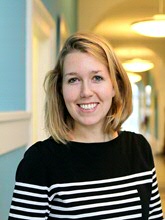In je eentje naar Nederland: hoe verloopt de opvang van alleenstaande gevluchte kinderen?

Gevluchte kinderen onder de vijftien jaar die alleen in Nederland aankomen, komen niet in een asielzoekerscentrum terecht, maar in een opvanggezin. Dat pakt goed uit, volgens onderzoek. Nidos, de organisatie die verantwoordelijk is voor het opvangen en plaatsen van alleenstaande, minderjarige vluchtelingen, plaatst deze kinderen in gezinnen die ‘cultureel matchen’. Jet Rip keek voor haar promotieonderzoek naar het succes van deze plaatsingen. Wat blijkt? Het werkt, maar op de lange termijn kan het juist belemmeren.
Culturele matching
Om te evalueren of culturele matching zinvol is, onderzocht Jet Rip wat de kinderen, opvangouders en voogden van Nidos dachten over de plaatsingen. Uit het onderzoek blijkt dat kinderen inderdaad aanvankelijk profiteren van opvang in opvanggezinnen met dezelfde taal, eetgewoonten, omgangsvormen en religie. ‘Kinderen geven aan dat ze steun ervaren omdat ze bepaalde gebruiken herkennen en bijvoorbeeld samen naar de kerk kunnen. Dat is ontzettend positief,’ vertelt Jet Rip.
Langere termijn
Het lijkt er dus op dat culturele matching goed werkt, maar uit het onderzoek blijkt de culturele match na verloop van tijd juist kan gaan wringen. ‘Het onderzoek wijst uit dat een plaatsing waarbij er veel culturele overeenkomsten zijn, naar verloop van tijd negatief verlopen, terwijl plaatsingen met minder overeenkomsten juist positiever verlopen,’ vertelt Jet Rip.
Het lijkt er op, dat naarmate de kinderen meer wennen aan de Nederlandse cultuur, de cultuur van het opvanggezin als een beperking kan worden ervaren. ‘Wanneer kinderen wat meer willen gaan integreren is de vraag of zo’n ‘cultuurgezin’ deze kinderen wel kan ondersteunen,’ legt Jet Rip uit. ‘Ook zien we dat zij vaak op termijn religie minder belangrijk gaan vinden, en dat kan problemen opleveren.’
De juiste ondersteuning
Het onderzoek wijst er op dat het belangrijk is de kinderen niet alleen te ondersteunen op het gebied van een culturele match. De studie benadrukt ook het belang van een goede relatie tussen kind en opvangouders. ‘Daarom zou professionele ondersteuning ook gericht moeten zijn op het in stand houden of verbeteren van die relatie’. Ook rapporteren opvangouders na verloop van tijd meer sociaal-emotionele problemen bij de kinderen. ‘Dat duidt er op dat het belangrijk is om te investeren in het ondersteunen van opvangouders in het omgaan met moeilijk gedrag van kinderen, zodat de plaatsing succesvol blijft,’ sluit Jet Rip af.
Jet Rip promoveert op 2 december om 14:30 in het Academiegebouw van de RUG. Kijk voor meer informatie op de website. De ceremonie kan ook gevolgd worden via de livestream.
Meer nieuws
-
17 februari 2026
Van ghostbuster tot rampenonderzoeker
-
03 februari 2026
‘Daar zit een goeie kop op’
-
20 januari 2026
Alcohol, appen en e-bikes


